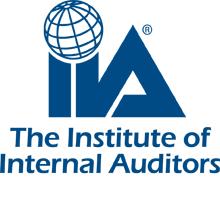
The Certified in Fraud Analytics (CFSA) certification is designed for professionals seeking to specialize in fraud detection, prevention, and investigation using advanced data analytics techniques. It validates expertise in utilizing data-driven approaches to identify and mitigate fraud risks effectively.
Benefits of CFSA Certification:
- Advanced Analytical Skills: The CFSA certification equips professionals with the knowledge and skills to apply advanced data analytics techniques, such as statistical analysis, predictive modeling, machine learning, and data visualization, to identify patterns indicative of fraudulent activities.
- Fraud Detection and Prevention: By harnessing the power of data analytics, CFSA-certified professionals can effectively identify anomalies, detect potential fraud schemes, and implement proactive measures to prevent future fraudulent activities.
- Professional Recognition: Holding the CFSA certification demonstrates a commitment to excellence in fraud analytics and proficiency in utilizing data-driven strategies to combat fraud. It is recognized and respected by employers, regulatory bodies, and industry peers.
- Career Advancement Opportunities: The CFSA certification opens doors to diverse career opportunities in fraud analytics, forensic accounting, risk management, and compliance. Employers value professionals who possess the skills to leverage data analytics in combating fraud effectively.
Requirements for CFSA Certification: To earn the CFSA certification, candidates must fulfill the following requirements:
- Education and Experience: Possess a minimum of a bachelor’s degree or equivalent in a relevant field, such as accounting, finance, or data science, from an accredited institution. Additionally, candidates must have at least two years of professional experience in fraud analytics, forensic accounting, or related areas.
- CFSA Examination: Successfully pass the comprehensive CFSA examination, which assesses candidates’ knowledge of fraud detection methodologies, data analytics techniques, statistical analysis, data visualization, and fraud prevention strategies.
- Adherence to Professional Standards: Uphold the highest ethical standards and adhere to the professional code of conduct in the practice of fraud analytics.
- Continuing Education: Maintain ongoing professional development by participating in relevant training programs, webinars, conferences, and staying updated with emerging trends and best practices in fraud analytics.
Website Link: To learn more about the Certified in Fraud Analytics (CFSA) certification and access resources provided by the certifying body, please visit their official website: [CFSA Certification Website]







